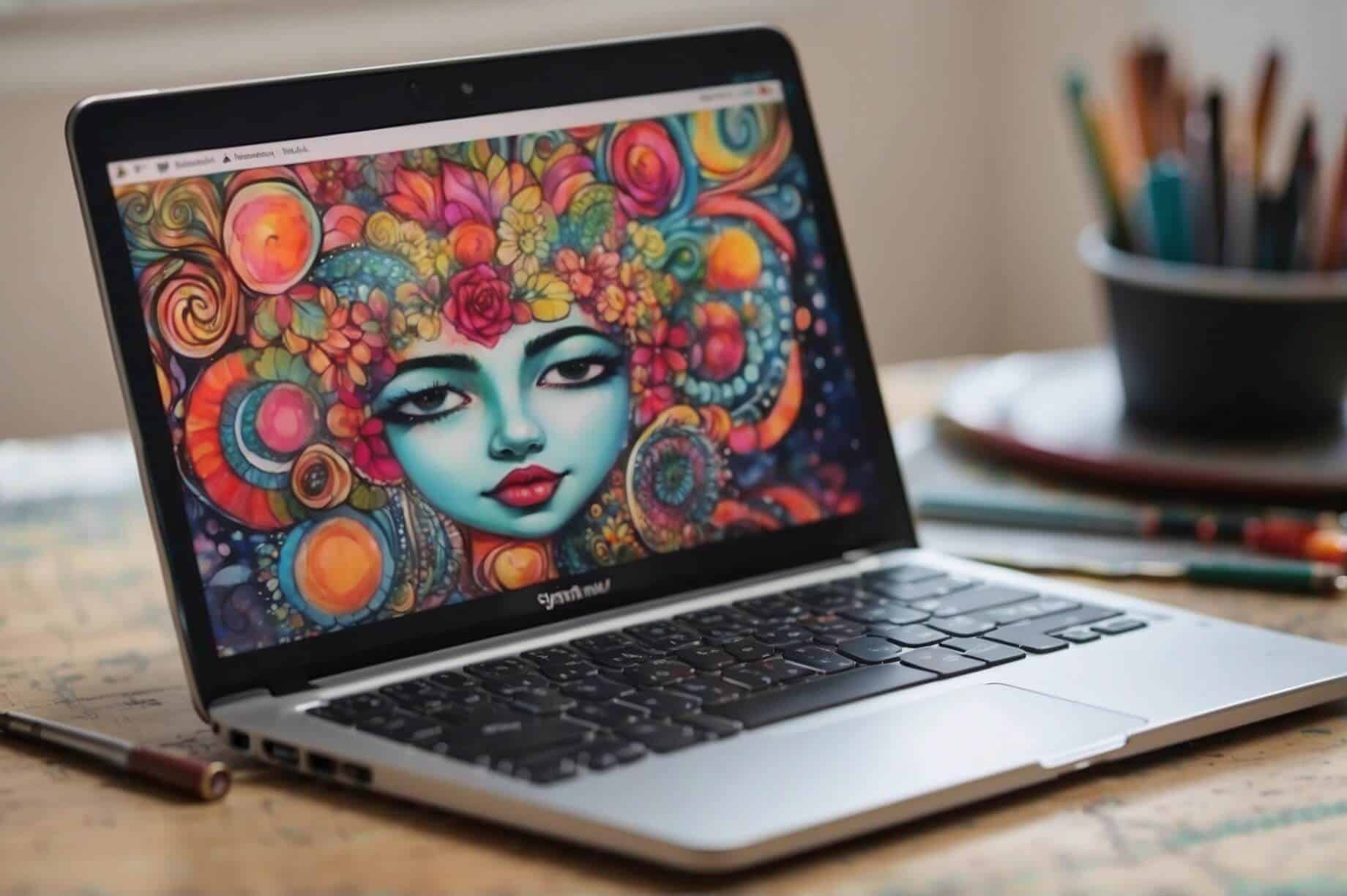Using AI to Enhance Creative Expression in Art Therapy

- January 29, 2024
- allix
- AI in Business
Scientists have developed a revolutionary digital platform for the creation of artificial intelligence, aimed at supporting participants in art therapy to formulate their thoughts more effectively while maintaining the therapeutic value of the activity.
The study, titled “DeepThInk: Exploring Human-Artificial Intelligence Collaboration in Digital Art Therapy,” was published in the International Journal of Human-Computer Research. The inventive platform, called DeepThInk, was created by a team of computer science experts from the University of Waterloo, along with peers from the Southern University of Science and Technology, working alongside professional art therapists. DeepThInk was started as a response to the difficulties encountered when art therapists had to adapt to remote sessions during the COVID-19 health crisis.
“Limited access to physical arts at home is a common problem,” noted Jian Zhao, associate professor of computer science at the University of Waterloo. “Current digital art platforms are either too simplistic or too complex for those unfamiliar with digital creative tools.” DeepThInk is designed to mitigate these issues by integrating common art utilities with an “artificial brush”, transforming simple user data related to landscapes into complex AI-rendered visual effects. “You can start with an AI brush by painting a stripe that represents the sea, and then iterate through the sea scenes until one matches your creative intent,” explained Xuejun Du, a computer science graduate student at the University of Waterloo. “Then, using standard brushes, you can place personalized elements like a ship at sea.”
For 10 months, the team worked continuously with five certified therapists from the Canadian Art Therapy Association. This partnership saw the importance of creating a tool that not only created visually stunning images with AI but also looked at how humans and AI could co-create art. “DeepThInk views artificial intelligence as an artistic resource that customers can use with the simplicity and familiarity of regular ink, but with greatly enhanced creative capabilities,” Zhao noted.
DeepThInk is currently in the prototype stage. However, the team aims to make it available as a free and open-source app for tablets. This initiative represents another inventive contribution by Waterloo researchers that can potentially be used in a variety of industries and sectors. The point of this new software is not to overshadow the creative person but to enhance their innate creative abilities. “In art therapy, the journey is often more important than the destination,” Zhao emphasized. “Our goal is to enhance the participant’s ability to immerse themselves in this therapeutic journey.”
Categories
- AI Education (39)
- AI in Business (65)
- AI Projects (87)
- Research (107)
- Uncategorized (5)
Other posts
- Medical Treatment in Brazil: Advanced Healthcare, Skilled Specialists, and Patient-Focused Care
- Dental Treatment in China: Modern Technology, Skilled Dentists, and Comprehensive Care for International Patients
- Plastic Surgery in China: Advanced Aesthetic Medicine Supported by Precision, Innovation, and Skilled Specialists
- Ophthalmology in China: Advanced Eye Care Guided by Innovation, Expertise, and Patient-Focused Treatment
- Finding Care, Calm, and Confidence: Why Patients Are Looking Toward Beroun in the Czech Republic
- Choosing Health, Energy, and a New Future: Exploring Gastric Bypass in Diyarbakır, Turkey
- When Facial Hair Tells Your Story: Considering a Beard Transplant in Phuket, Thailand
- When Prevention Becomes Power: Understanding Liver Cirrhosis Risk and Modern Screening Approaches in Spain
- When the Abdomen Signals Something Serious: Understanding Abdominal Aortic Aneurysm and Getting Expert Evaluation in Islamabad
- When Back Pain Becomes More Than “Just Pain”: Understanding the Need for Microdiscectomy
Newsletter
Get regular updates on data science, artificial intelligence, machine



